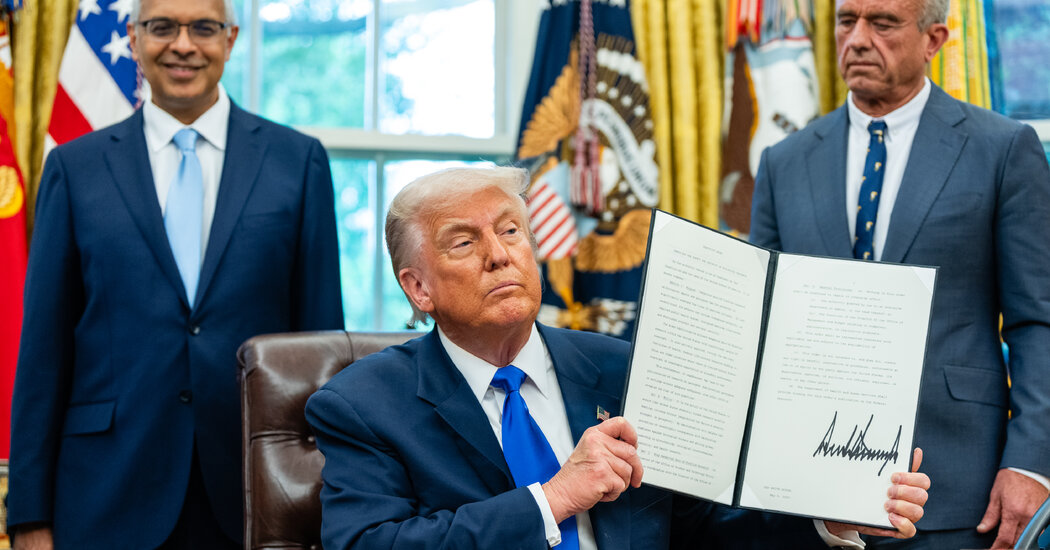President Trump will sign an executive order on Monday to reduce some drug prices in the United States by aligning them with what other rich countries pay, he said in Truth Social on Sunday night.
The proposal he described, which alone cannot change the federal policy, is what he calls a “most favored nation” price model. Mr. Trump did not provide details about what kind of insurance would the plan or how many drugs be directed, but indicated that the United States should be the lowest price among its peer counter.
“Our country will finally be treated fairly, and our medical care costs of citizens will be reduced by numbers never thought or before,” hears, in their publication on social networks.
It is very likely that any plan of this type is subject to challenges in court, and it is not clear if it will approve the legal meeting, especially without Congress measures.
In his first term, Trump tried unsuccessfully to promulgate a version of this idea for Medicare, the health insurance program that covers 68 million Americans who are 65 years old or have disabilities. That plan would have been applied only to 50 medications, administered in clinics and hospitals, which are paid by Medicare. A Federal Court blocked it, ruling that the administration had jumped the steps in the policy formulation process.
The pharmaceutical industry is bitterly opposed to the idea, which would almost surely reduce its profits, and has been pressing against it, since politics discussions have recovered steam in Washington in recent weeks. Companies have warned that such policy would lead them to spend less in research, depriving patients with new medications.
“The government’s pricing establishment is bad for American patients,” said Alex Schriver, an official of the main lobbying group of the pharmaceutical industry. He added: “Policy formulators must focus on fixing defects in the American system, not importing failed policies from abroad.”
Trump’s hug for the idea distinguishes it from most Republicans, who have tended to be skeptical about the establishment of government prices. Democratic legislators have proposed versions of the idea.
Ameet Sarpatwari, an expert in pharmaceutical policy at Harvard’s Faculty of Medicine, said Trump was taking advantage of an idea that had “populist appeal.”
Trump has long complained that the United States pays much more than other rich countries do for the same drugs. And he is right. In the United States, the prices of the medications of the notes are three times higher, on average, than those of the pairs.
That is despite the fact that much of the research that leads to new drugs is located in American laboratories and hospitals.
Medication manufacturers generate a substantial majority of their global sales profits in the United States and generally design their commercial strategy throughout the US market.
Pharmaceutical companies argue that high prices in the United States come with an additional benefit: industry financed analyzes have found that patients in the United States obtain faster medications and with fewer restrictions insurance than those in other countries.



